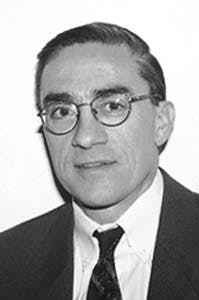Anatomy of a Legislative Victory Deepwater royalty relief product of 31/2 year U.S. political effort
Randall E. Davis
Stuntz & Davis
Washington, D.C.
Shirley Neff
Senate Energy and Natural Resources Committee
Washington, D.C.
Against the backdrop of more than 20 years of increasingly stringent environmental regulation, ever-expanding exploration and development moratoria on the Outer Continental Shelf (OCS), and reductions in producer tax incentives, oil and natural gas exploration companies active in deep waters of the Gulf of Mexico recently won a significant legislative victory.
On Nov. 28, 1995, President Clinton signed into law S.395, the Alaska Power Administration Sale Act. Title III of S.395 embodies the Outer Continental Shelf Deep Water Royalty Relief Act. This landmark legislation provides substantial incentives for oil and natural gas production in the Gulf of Mexico by temporarily eliminating royalties on certain deepwater leases (see sidebar).
It is the first direct incentive for oil and gas production enacted at the federal level in many years. Federal help for producers in recent times has amounted only to relaxation of production disincentives-such as wellhead price controls and subjection of oil field expenses to the alternative minimum tax-embedded in existing laws.
The deepwater incentives breakthrough did not come easily. Enactment of the law resulted from an intensive 31/2 year effort by companies interested in deep waters of the gulf and congressional representatives of states that will benefit most. The legislation had to overcome persistent opposition and survive several dramatic setbacks-including, at one point, a division within the oil industry itself.
The history of the deepwater incentives legislation thus is as instructive as it is intriguing. It provides lessons that the oil and gas industry can employ in other federal issues and assurance that a determined effort can mean legislative triumph.
The concept of providing limited royalty relief to encourage production in deep waters of the OCS initially was raised by Victor Beghini, president of Marathon Oil Co., in 1992.
Beghini's idea was to try to partially overcome the costs and risks of exploration and development in deep waters of the OCS by providing a royalty holiday until capital costs associated with a particular project had been recovered through sales of oil or natural gas. After capital costs had been recovered, royalties would be payable at their normal rate.
Beghini's royalty holiday was loosely based on an incentives program the U.K. used to encourage development in the North Sea.
The phrase "royalty holiday" ended up being used against the industry by one of its harshest critics, Rep. George Miller (D-Calif.), who in July 1995 argued, "If the Congress is adamant about giving a multibillion-dollars holidays [sic] away, there are many Americans far more deserving than the oil industry." It nevertheless described the concept's intention.
Beghini raised the royalty holiday idea in a meeting in July 1992 with Sen. J. Bennett Johnston (D-La.), who had asked Beghini and other oil industry representatives for their thoughts on incentives to encourage oil and gas production in the Gulf of Mexico. Johnston immediately grasped the importance of the royalty holiday proposal and agreed to be the primary Senate sponsor of the legislation.
He introduced S.3127, the Outer Continental Shelf Deep Water Production Incentives Act, on Aug. 4, 1992. S.3127 was an important starting point for the deepwater incentives legislative effort, but it was a fairly unsophisticated legislative vehicle.
In hearings by the Senate Energy and Natural Resources Committee, the Bush administration supported S.3127 with a number of reservations, which threatened the viability of the legislation. Among the administration's concerns were: 1) possible negative effects on the federal budget, including a triggering of the pay-as-you-go (Paygo) provisions of the Budget Enforcement Act (BEA), and 2) its administrative complexity.
Of these two, the Paygo implications were the most serious. Paygo requirements allow a point of order to be made against any legislation that increases federal mandatory spending or reduces federal revenues, unless these changes are paid for, dollar for dollar, through cuts in entitlement programs or tax increases.
While Paygo points of order can be waived by affirmative votes of both houses of Congress, they rarely are because of political and procedural hurdles. Advocating a BEA waiver for the deepwater legislation was not considered to be a viable option.
The 102nd Congress adjourned in October without further action on the legislation and without a final resolution of the outstanding issues.
The defeat of President Bush in the general election that fall complicated the outlook for OCS royalty relief. While the Bush administration had concerns with S.3127, it nonetheless supported the concept of deepwater royalty relief, and it generally was viewed as supportive of the oil and gas industry.
The Clinton administration, and in particular the new Secretary of the Interior, Bruce Babbitt, had no such reputation.
Victor Beghini, president of Marathon Oil Co., first raised the idea about limited royalty relief to encourage production in deep waters of the OCS in 1992.
A second try
When the 103rd Congress convened in January 1993, Johnston again introduced deepwater incentives legislation. This bill, S.318, was cosponsored by Sen. Bob Krueger (D-Tex.). The Senate Energy and Natural Resources Committee held hearings on the legislation on Sept. 14, 1993, and reported an amended version of the bill on Apr. 11, 1994.
From the time the bill was introduced until it was reported, intensive discussions took place among industry representatives, Johnston, and the Clinton administration in an effort to resolve the budget issues and to win the administration's support. Without this support, Johnston and the industry believed the legislation would not go far.
With time running out in the 103rd Congress, Johnston decided that he had to start moving the legislation and that this would prompt the administration to speed its deliberations.
The Senate Energy and Natural Resources Committee made a number of changes to the legislation. To address budget concerns, S.318 provided that new production from existing leases would not receive royalty relief unless the Secretary of the Interior found that the royalty burden made such production uneconomic. Production from new leases, however, remained exempt from Secretary of the Interior review.
The change regarding existing leases was necessary to make the legislation budget-neutral and thus to avoid Paygo provisions of the BEA. The reasoning was that, with respect to new leases, companies would bid more for leases knowing there would be no royalties due on a specified amount of production from a successful development. This would, over the 5 year period over which legislation is normally assessed-or "scored"-by the Congressional Budget Office (CBO) and Office of Management and Budget (OMB) for budget purposes, increase revenues to the Treasury.
Given the long lead times of deepwater development projects, any loss of royalties would not occur until after the budget-scoring window-6 or 7 years, at a minimum, before production would occur. Thus, there would be no Paygo problem.
With respect to existing leases, however, there would be no increased bonus payments to offset the future loss of royalties, and many of these leases could go into production within 5 years-inside the budget scoring window. Thus, if they were automatically granted royalty relief, there would be revenue losses to the Treasury. In addition, without Secretary of the Interior review, it was argued that there would be a substantial number of "free riders"; i.e., a number of leases not needing incentives to be economical would receive them, thus costing the Treasury revenues without any corresponding benefit.
In order to make the secretarial review provision more palatable, the industry insisted that the legislation include a provision for automatic approval of a petition for royalty relief in the event the Secretary of the Interior failed to act on a completed petition within a time certain. This way, secretarial inaction would not defeat a meritorious request for relief.
The strategic decision to accept whatever modifications were necessary to ensure that the deepwater legislation would be scored as budget-neutral by the OMB and the CBO was one of the most important decisions Johnston made early in the legislative process. As a result of changes made by the committee, the CBO officially scored S.318 as being, at worst, budget-neutral.
Sen. J. Bennett Johnston (D.-La.) provided the legislative sponsorship crucial to enactment of the deepwater incentive.
Administration support
After S.318 was reported from the committee, the burden of enlisting the support of the Clinton administration fell heavily upon Johnston. While the Department of Energy was completely supportive of the legislation, the Department of Interior, the agency with administrative responsibility for royalty collection, was not.
Three-way negotiations between the industry, Johnston, and staff of the Interior Department's Minerals Management Service were required to resolve the problem of how to administer the provision. Two competing yet interconnected goals-the MMS obligation to maximize revenues of the federal Treasury and the industry's need to make prudent capital investments based upon conservative assessments of risks associated with exploring frontier areas-had to be reconciled in these negotiations.
Because of their extensive experience in evaluating the economics of deepwater development in the gulf, MMS officials agreed to run a number of scenarios through their models, using a range of oil and gas price assumptions, platform development costs, and expected transportation costs to determine the minimum economic field size in three water depths: 200-400 m, 400-800 m, and 800 m and deeper.
While all parties agreed upon the MMS modeling assumptions regarding project development, resource, and transportation infrastructure costs, they disagreed on the oil and gas price assumptions and the industry's necessary return on capital. They resolved this disagreement by adopting results of a confidential industry survey provided to the MMS by Johnston.
The MMS analysis showed that, on average, capital costs would be recovered after approximately 35% of the recoverable hydrocarbon volume was produced from a field of the minimum economic size. The royalty waiver was, therefore, set on the basis of this volumetric approach rather than an average dollar figure to simplify administration and reduce accounting and auditing costs for the industry and the MMS. The volumetric approach, including specific waiver volumes, was agreed upon because it deliberately targeted the economic incentive to marginal fields.
Opponents of the legislation argued that the MMS could offer a royalty waiver, without additional legislation, through the net profit share provision of the Outer Continental Shelf Lands Act (Ocsla). Leasing subject to a net profit share under Ocsla accomplishes essentially the same thing as waiving royalties based upon capital cost recovery under S.318.
During negotiations, it was pointed out that net profit share leases have been offered in the past with little success due to their administrative complexity and extensive recordkeeping and auditing costs. The MMS finally agreed to a royalty waiver, subject to a proxy for capital cost recovery, as an alternative that would provide the benefits of the net profit share concept without the extensive administrative burden.
With administration support now firmly in hand, Johnston tried to jump-start the OCS royalty relief legislation by raising it in the House-Senate conference on the hard rock mining reform bill. Although not technically permitted under either House or Senate rules, new issues are sometimes added to legislation even at the conference stage after legislation has passed both Houses. Johnston included the negotiated deepwater language in his proposed chairman's mark on mining reform.
In large part, Johnston employed this unusual procedure to overcome the adamant opposition of Sen. Howard Metzenbaum (D-Ohio), who was determined to use every procedure available to him in the Senate to prevent the free-standing legislation from coming to the Senate floor. California's Miller, then chairman of the House Committee on Natural Resources, also would have been a significant, if not insurmountable, obstacle to House consideration of the deepwater proposal.
Johnston knew that the House would never have a chance to vote on the deepwater bill unless it was incorporated with another legislative vehicle that the House supported. Mining reform was one of Miller's highest priorities. Unfortunately, the 103rd Congress adjourned without the mining reform bill emerging from conference committee.
The deepwater incentives bill again died. But good progress had been made. For the first time, the Clinton administration was now firmly in support of the legislation, and budget objections apparently had been answered.
Rep. George Miller (D-Calif.) was one of the harshest critics of the deepwater royalty relief measure.
Political shift
When the Republicans won control of both houses of Congress in 1994, prospects for the deepwater legislation dramatically changed. On one hand, the political shift further diminished chances for passage because Johnston no longer chaired the Senate Energy Committee and therefore no longer controlled the legislative schedule. On the other hand, Metzenbaum had retired, and Miller no longer was in a position to block the legislation from consideration in the House.
Early in the 104th Congress, the Alaska Power Administration Sale Act (S.395) provided Johnston with a legislative vehicle to speed consideration of the deepwater incentives measure. When the Alaska power bill was being considered by the Senate on May 16, 1995, Johnston offered the deepwater incentives bill as an amendment. It passed by voice vote with little debate.
Now industry representatives believed that their job was mostly done. After all, the deepwater bill was included in legislation that Don Young (R-Alaska), chairman of the House Resources Committee; Frank Murkowski, (R-Alaska), chairman of the Senate Energy and Natural Resources Committee; and the Clinton administration strongly supported. While the companion House bill, H.R.70, did not contain the deepwater legislation, the industry believed that the House would easily accept the Johnston amendment in the House-Senate conference on the bills.
The industry was ready to declare victory when disaster struck. Miller chose to fight the legislation vigorously to the end. When it was time to appoint House conferees on S.395, Miller exercised a seldom-used parliamentary procedure that allows any member to move that the House instruct its conferees to either accept or reject certain Senate provisions in conference.
Miller moved to instruct the House conferees to reject the Senate deepwater incentives amendment in conference. While the industry had about 12 hr advance notice of the Miller motion, it assumed that with House Republican leadership opposition there was little likelihood that the Miller motion would prevail.
Accordingly, little was done to educate members of the House about the deepwater legislation, and few were aware of what it did. During the floor debate on the Miller motion, the only information most members had was what Miller provided on the day of the vote. Miller's motion to instruct the House conferees passed 261-161 on July 25, 1995.
Although motions to instruct conferees are not binding on conferees, ignoring these instructions increases chances that the conference report will be defeated when it comes back to the floor for final disposition. The margin of the loss plunged supporters of the deepwater incentives legislation into despair. If it accurately reflected true House sentiment on the deepwater royalty relief issue, it would be virtually impossible to change the 57 votes necessary to assure final passage of the conference report with the deepwater language in it.
Moreover, without evidence that the votes would be there on final passage, the two committee chairmen from Alaska would be hesitant to jeopardize other provisions in the conference report that were of great importance to Alaska. Thus, despite the relatively easy success in the Senate, prospects for enactment of deepwater incentives legislation were worse in July of 1995 than they had been at any time since the beginning of the effort nearly 3 years earlier.
The debate
The House floor debate on the Miller motion to instruct conferees was characterized by assertions of the high budgetary costs of the legislation and claims that it amounted to "corporate welfare" for the oil and gas industry.
Miller contended that provisions of the deepwater legislation regarding existing leases would cost "somewhere between $10 billion and $15 billion...and we have not even dealt with the issue of the future leases." Members of the Florida delegation and other coastal states believed that the legislation somehow affected existing areas under leasing or development moratoria. For the most part, these assertions went unchallenged.
The industry and its congressional supporters resolved that this would not happen again. If the deepwater issue were to be resurrected, a painstaking education process would have to be undertaken to correct the record as to what the legislation did and did not do.
Passage of the Miller motion to instruct initiated a 4 month public policy debate over the deepwater proposal characterized by a flurry of charges and countercharges. The most serious assertions the industry had to overcome were that the deepwater legislation was a budget buster costing billions of dollars and that it amounted to "corporate welfare" in an era of budget austerity.
The CBO had, in 1994 and 1995, officially scored the deepwater legislation as being, at worst, budget-neutral over the 5 year budget scoring window. However, after the motion to instruct the House conferees passed, Miller asked the CBO to analyze the long-term implications of the legislation on the federal budget.
In response to Miller's request, the CBO projected that the deepwater legislation would increase revenues by about $100 million over 5 years but cost the Treasury more than $400 million over 25 years. While the CBO estimate did not trigger the Paygo requirements of the BEA, since only losses occurring within a 5 year scoring window count for purposes of the BEA, members would not be inclined to support the legislation if it was viewed as costing money.
The CBO analysis was a major setback. Industry representatives had designed their entire lobbying effort around the claim that the deepwater legislation was, at worst, budget-neutral.
The CBO analysis seriously undermined the credibility of the industry and its budget claims. But the CBO analysis had a number of flaws, which Johnston and the industry sought to exploit.
In making its estimate, CBO used nominal rather than discounted dollars, and it deviated from its normal 5 year budget-scoring window. Moreover, it did not "score" revenues from bonus bids from leases that would not have been leased without the deepwater incentives, calling them "highly speculative." Despite serious defects in the CBO estimate, the $400 million cost estimate was now on the public record and had to be addressed.
Cost squabble resumes
Johnston initiated discussions with the administration in an effort to persuade MMS, which furnished the data CBO used in its analysis, to issue its budget cost estimates.
While the Secretary of the Interior was unwilling to do so, the DOE, with OMB's blessing, issued administration 23 year cost estimates that contradicted the CBO projections. Using discounted numbers and assuming modest increases in development activity, the administration projected that the deepwater legislation would net the government more than $200 million over the next 23 years.
DOE's projection, expressed in a letter from Energy Sec. Hazel O'Leary to Johnston in October 1995, strengthened the industry challenge to CBO's budget analysis. This became crucial to the lobbying effort in Congress.
A key to the industry strategy was to persuade John Kasich (D-Ohio), chairman of the House Budget Committee, to support the legislation. Many representatives, especially first-term Republicans, followed Kasich's lead on budget issues. A supporter of Miller's motion to instruct, Kasich eventually backed the deepwater incentives, in part because of industry's success in demonstrating flaws of CBO's analysis and distortions that opponents of the measure made concerning fiscal effects.
The industry education and lobbying effort was conducted office by office and member by member. In total, over 150 House members received visits, and all 435 received multiple mailings and letters.
Soon after the Miller motion to instruct passed, the industry got its first major break when Rep. Roger Wicker (R-Miss.), president of the freshman Republican class, agreed to help. This not only gave the industry credibility with the freshman Republicans, which had supported Miller's motion to instruct with 35 votes-more than a third of all Republican votes-but also a much needed boost to flagging morale.
With Wicker's enthusiasm and eagerness to help coming at a critical time, the industry began to believe that it had a realistic chance of success. On Oct. 11, Wicker sent out a "Dear Republican Colleague" letter to his fellow freshmen and provided a forum for the issue at one of the freshmen weekly meetings. Wicker also personally contacted a number of freshman Republicans urging support of the deepwater legislation.
Wicker's efforts were part of a much larger bipartisan member whip organization working the deepwater issue. Reps. Bill Brewster (D-Okla.) and Glenn Poshard (D-Ill.), through the Congressional Oil and Gas Forum, conducted extensive educational efforts. Rep. Billy Tauzin (R-La.) and other members from oil and gas producing states were extremely active in personally talking with their colleagues to garner support for the legislation, as were several members from northeastern and midwestern steel producing states.
In addition to the informal bipartisan whip organization, the Republican leadership conducted a formal vote count prior to the floor vote. These parallel efforts allowed cross-checks, which improved the accuracy of the final estimated vote tally.
Energy Sec. Hazel O'Leary sent Johnston a pivotal letter containing estimates contradicting Congressional Budget Office projections that deepwater royalty relief would cost the government money in the long term.
Industry infighting
While congressional prospects improved, however, a new threat to the deepwater incentives developed-this time from within the oil industry itself.
The impetus behind the Alaska Power Administration Sale Act legislation was a provision to repeal the ban on export of Alaskan North Slope crude oil. Alaska, North Slope oil producers, and California independent producers all strongly supported the proposed lifting of the export ban. Because the Johnston amendment attracted such strong opposition, some of these producers began to see the deepwater initiative as a threat to the entire conference report, including repeal of the export ban.
The threat split the industry. Some producers advocated that the deepwater initiative be jettisoned from the Alaska Power Administration Sale Act. This set off intensive infighting within the industry, which almost stripped the deepwater incentives measure from the final conference report.
Because Johnston insisted that it remain and the industry worked hard to demonstrate that there was a realistic chance that it could pass the House, the measure survived. However, in agreeing to keep the deepwater initiative in the final conference report, Alaska's Young and Murkowski insisted that the House be given the opportunity to vote separately on the deepwater portion of the legislation; if it was defeated, a new conference report would immediately be brought back to the House without the deepwater initiative.
From a parliamentary standpoint, this was not a secure position for industry supporters of the deepwater incentives. But it represented a reasonable compromise. At least the offshore industry had been given the chance by Young and Murkowski to garner votes necessary for the deepwater legislation.
This decision by the Alaska lawmakers, which represented some risk to the oil export ban legislation, was pivotal. Without it, the deepwater legislation would have again died, probably for all time. Once the decision was made, even nay-sayers in the industry coalesced behind the deepwater provision.
While the bill still was in conference, Johnston, with industry support, proposed several modifications. These changes were designed to allow proponents of the deepwater legislation legitimately to claim that the legislation coming out of the conference committee was not the same legislation that was the subject of Miller's earlier motion to instruct conferees.
It would be easier for members to justify their support for the conference report-and opposition to the expected Miller motion to recommit the conference report-if the legislation was perceived as different from what had been voted on previously. The changes were modest, but they proved to be important in the final vote.
First, a paragraph was added to the legislation that clarified that nothing in the bill was intended to affect any existing preleasing, leasing, exploration, or development moratoria, including any moratoria off Florida.
Second, the provision giving the Secretary of the Interior discretionary authority to modify or eliminate any royalty in order to encourage production was limited to the Central and Western Planning Areas of the Gulf of Mexico. Having the support of the Florida delegation was crucial, and these provisions were instrumental in garnering that support.
The final victory
The conference report on S.395 was filed on Nov. 6, 1995. On Nov. 8, a rule waiving certain points of order and structuring debate on the conference report on S.395 was considered by the House.
Under the rule, all points of order against the conference report were waived, and one motion to recommit the report to the conference committee, with or without instructions, was made in order. Miller would use the motion to recommit to try to send the bill back to conference committee and again instruct House conferees to reject the deepwater incentives provision.
The waiver of points of order was important because under House rules any nongermane Senate provision, such as the deepwater incentives measure, is subject to a point of order. Unless the House agrees to waive the point of order, the conference report is considered to be rejected. Motions to recommit are the prerogative of the minority and are generally viewed as procedural motions. Consequently, members in the majority party are more inclined to oppose them.
Industry representatives thought they stood a better chance of winning if the fight over the deepwater initiative was structured to take place over a procedural motion to recommit the conference report with instructions, as opposed to a motion to waive a valid point of order on germaneness grounds.
Debate over the rule could not have gone better for supporters of the deepwater legislation. While the rule merely set forth the procedural framework for subsequent debate over the conference report, members used the occasion to debate the substance of the deepwater incentives provision. Debate over the rule was a full dress rehearsal for debate over the conference report.
Few members spoke against the rule, and their arguments were unpersuasive. More importantly, a number of members who had earlier supported the Miller motion to instruct conferees in July spoke in support of the deepwater incentives legislation and announced their intention to oppose the Miller motion to recommit the conference report.
Support from the Florida delegation, which earlier had voted almost unanimously in support of the Miller motion to instruct conferees, began to appear. Momenturn clearly had shifted.
The rule passed 361-54.
While the vote for the rule would not necessarily determine the level of support for the deepwater incentives provision, the tenor of the debate suggested that it would be a good bellwether for the vote on Miller's motion to recommit the conference report. After the debate and vote on the rule, the debate over the conference report and Miller's motion to recommit proved to be anticlimactic.
The vote on the Miller motion to recommit was 160 for, 261 against. Only nine members of the all-important freshman Republican class supported Miller. The majority of the Florida delegation also opposed the Miller motion. The industry and its congressional supporters had overwhelmingly prevailed.
Six days later, on Nov. 14, 1995, the Senate took up the conference report on S.395 and passed it by a vote of 69-29. The legislation was on its way to the President for his certain signature, which occurred on Nov. 28.
Lessons of victory
In analyzing the 31/2 year congressional debate over deepwater incentives legislation, several important lessons emerge. They concern elements essential to any successful legislative campaign, including:
- Congressional leadership. Having strong, capable, committed congressional advocates is essential. Johnston's efforts were the single most important factor in the success of the effort.
- Packaging. Framing and packaging an issue are important. The industry successfully packaged the deepwater incentives issue as a jobs and domestic production program, which also happened to raise money for the federal Treasury.
- Strategy. Making the right strategic decisions can be key. Wrong choices can be fatal to a legislative effort. In retrospect, it is clear that several decisions that seemed to be of lesser importance at the time they were made ended up being key elements of the ultimate victory. Making modest changes to the legislation in conference was one of these key decisions.
- Recognition and accommodation of public policy and administrative concerns. Working with the administration to develop a specific proposal that would achieve the goals of the industry without creating an unnecessary administrative burden for the MMS was important.
- Hard work. There is no substitute for hard work and perseverance. Office by office education on the deepwater issue was an important element of the final victory.
- Broad ally base. The oil industry has a particularly narrow natural base of congressional support. In order to be successful, the industry had to expand its base of allies beyond a narrow oil and gas industry focus. In this case, oil field equipment and services suppliers, the steel industry, and heavy equipment manufacturers were enlisted to support the legislation. The steel caucus was especially effective in mobilizing support from nontraditional allies.
- Attention to opposition. An opposition argument not responded to is an argument lost. The industry and congressional supporters of the deepwater legislation responded quickly and thoroughly to opposition statements. The responses were heavily laden with facts and statistics. In the end, members had enough information to believe the supporters' arguments.
- Intimate knowledge of parliamentary procedure and congressional budget rules. The deepwater incentives legislation would not have become law had the BEA and CBO scoring conventions been ignored. In addition, knowledge of House and Senate rules allowed the industry and its congressional supporters to fully explore all procedural options and to develop a sound strategy around those options.
Positive agenda
At least since the Exxon Valdez oil spill of March 1989, the oil industry has been on the defensive on legislative issues, particularly those involving offshore exploration and development.
The overriding lesson of the deepwater royalty relief legislative effort is that with solidarity, perseverance, hard work, committed congressional allies, and the right political strategy, the industry can be successful in advancing a positive legislative agenda.
Interior Sec. Bruce Babbitt did not want to release a long term cost analysis that contradicted CBO's projection.
Deepwater legislation makes three key changes
The Deepwater Incentives Legislation makes three very important changes to existing law:
- It temporarily eliminates royalties on production from new leases (those offered after the date of enactment) for tracts in more than 200 m of water in the central and western Gulf of Mexico until a specified amount of production occurs from those leases. The amount of production exempt from royalties is 17.5 million bbl of oil equivalent for water depths of 200-400 m, 52.5 million boe for leases in 400-800 m, and 87.5 million boe for leases in water deeper than 800 m.
- It authorizes the Secretary of the Interior to temporarily eliminate royalties on new production from existing leases if he finds that production would not be economic without the relief requested. The secretary must then determine the royalty-free volume that would make the new production economically viable, which can be no less than volumes specified for new leases.
For new production pursuant to a Development Operations Coordination document approved by the secretary after the date of enactment, no royalty is due for 1 year following the start of production. If the secretary fails to act on a petition requesting relief within 180 days after filing, royalty relief is automatically granted.
- It gives the Secretary of the Interior discretion to reduce or eliminate any royalty in order to promote development on nonproducing leases or to encourage primary, secondary, or tertiary recovery from marginal leases in the gulf.
The Authors
Randall Davis is a member of the law firm of Stuntz & Davis PC, specializing in legislative and regulatory matters affecting the energy industries. Prior to cofounding Stuntz & Davis, he was a partner in the law firm of Jones, Day, Reavis & Pogue; associate director for natural resources, energy, and science at the Office of Management and Budget; special assistant to the President for energy and natural resources and the environment, White House Office of Policy Development; special assistant to the President for legislative affairs; and minority counsel and staff director, U.S. House of Representatives Committee on Energy and Commerce.Davis received his JD from Catholic University of America and his BA in economics and business administration from Wilmington College
Shirley J. NeffM is a staff economist for the Senate Energy and Natural Resources Committee. In addition to economic analyses for the committee, she has primary responsibility for issues concerning the oil and natural gas industry, renewable energy and energy efficiency, global climate change, and international energy issues.Prior to joining the committee in May of 1993, she spent 31/2 years as the director of legislative affairs for the Interstate Natural Gas Association of America. She has also worked as a staff economist for the Kansas Corporation Commission and Texas Oil & Gas Corp.
She has an MS in economics from the University of Wisconsin-Madison.
Copyright 1996 Oil & Gas Journal. All Rights Reserved.







